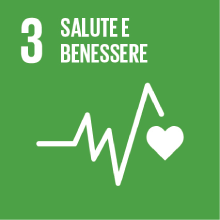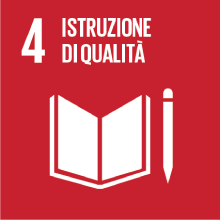ENVIRONMENTAL HISTORY: LABOUR-ENVIRONMENT RELATIONS IN CONTEMPORARY ITALY
- Anno accademico
- 2022/2023 Programmi anni precedenti
- Titolo corso in inglese
- ENVIRONMENTAL HISTORY: LABOUR-ENVIRONMENT RELATIONS IN CONTEMPORARY ITALY
- Codice insegnamento
- LMH210 (AF:368596 AR:214470)
- Modalità
- In presenza
- Crediti formativi universitari
- 6
- Livello laurea
- Laurea magistrale (DM270)
- Settore scientifico disciplinare
- M-STO/04
- Periodo
- 3° Periodo
- Anno corso
- 1
- Sede
- VENEZIA
- Spazio Moodle
- Link allo spazio del corso
Inquadramento dell'insegnamento nel percorso del corso di studio
It aims at exploring the relationship between humans and nature through industrial work; the contribution of labour movements in creating ecological awareness (as well as its difficulty to fully encompass environmental issues in its agenda); the features of environmental conflicts which came out of industrialisation and deindustrialisation processes; more in general, it aims at intertwining Labour History and Environmental History.
Risultati di apprendimento attesi
- knowledge of the main issues and methods of Labour History and Environmental History
- knowledge of the impact of the Industrial Revolution over environment and human health
- understanding the role of industrial labour in changing the relationship between human beings and natural environment
- understanding the fallouts over workers and communities of the environmental degradation caused by industry
Ability to apply Knowledge and Understanding
- ability to identify a common ground between Labour History and Environmental History
- ability to recognize the complexity of the relation between industrial production, employment and the protection of the environment
- ability to critically evaluate the causes of environmental conflicts provoked by industrial activities
Communication Skills
- ability to participate in group discussion adopting a suitable terminology and respecting the opinions of others
- ability to draw on personal experiences to enrich the group discussion
Learning Skills
- ability to take part in interactive and collaborative activities on the Moodle platform
- ability to increase the bibliography through personal research
Prerequisiti
Contenuti
This course aims at exploring the relationship between industrial labour and the environment, workers and residents of the industrial towns, trade unions and environmental movements in contemporary Italy. It will examine conflicts and misunderstandings as well as mutual exchanges, reciprocal influences and common causes.
The starting point will be the cycle of factory struggles of 1968-1972, when in some Italian areas and towns workers’ claims on matters of health and safety fostered practices of “labour environmentalism”. It will then focus on the ways the economic crisis of the 1970s and environmental disasters of national and international relevance (such as Seveso, 1976; Bhopal, 1984; Chernobyl, 1986) favoured the perception that industrial production and the safeguard of environment and public health could not coexist.
Threatened loss of jobs pressured workers’ organization into withdrawing, or softening, their demands for safety, health and sustainability, thus hindering their dialogue with the emerging environmental movements. Class, gender and generation lines were also involved in shaping this divide.
Much attention will be devoted to the ways in which deindustrialisation and offshoring of manufacturing jobs have contributed since the 1980s to reshaping the relations between labour and the environment. As Deindustrialization Studies have proved, industrial decline affects working classes in their economic conditions (unemployment, job insecurity, impoverishment), their morale (sense of loss, despair, frustration) but also their environmental circumstances (occupational diseases, contamination, urban decay). Both workers and urban communities continue to deal with the aftermath of workplace injury, occupational and environmental illness long after the factories causing them have been demolished.
The perspective of the course is that “labour versus environment” conflicts are not inevitable and that such a narrative has to be challenged. In a context of industrial decline, workers and environmentalists share interests in their critique of an economic model that both exploits workers and degrades the environment, as well as in envisaging alternative ways of production.
Drawing on recent studies, a series of “working-class environmental histories” will be presented and discussed, in a journey through Italy from the North to the South, from the chemical to the steelmaking industry, from the heartland of industry to its periphery.
Testi di riferimento
Nora Räthzel, Dimitris Stevis, David Uzzell, The Palgrave Handbook of Environmental Labour Studies, Palgrave-MacMillan 2021
Mauro Diani, Green Networks. A Structural Analysis of the Italian Environmental Movement, Edinburgh University Press, 1995
Federico Paolini (ed. by), Industrial Labour and the Environment. Notes for a History of a Global Transformation, Cambridge Scholars Publishing 2020
Stefania Barca, Laboring the earth. Transnational reflections on the environmental history of work, «Environmental History», vol. 19, n. 1, 2014, pp. 3-27
Stefania Barca, Bread and Poison. The Story of Labor Environmentalism in Italy, 1968-1998, in Christopher Sellers and Joseph Malling (eds), Dangerous Trade. Histories of Industrial Hazards across a Globalizing World, Temple University Press, 2012, pp. 126-139
Barbara Allen, A Tale of Two Lawsuits. Making Policy-Relevant Environmental Health Knowledge in Italian and U.S. Chemical Regions, ivi, pp. 154-167
Janis Bailey and Ross Gwyther, Red and Green: Towards a Cross-Fertilisation of Labour and Environmental History, «Labour History», n. 99, 2010, pp. 1-16
Richard White, “Are You an Environmentalist or Do You Work for a Living?”: Work and Nature, in Uncommon Ground: Rethinking the Human Place in Nature, ed. by William Cronon, W.W. Norton, New York 1996, pp. 171-185
Modalità di verifica dell'apprendimento
Written Paper: 40%
Final discussion 20%
Students are expected to write an original paper (3000/5000 words) critically developing the topics of the course (Labour/Environment relationship). The widening of methodological perspectives is warmly encouraged. The paper has to be submitted to the instructor at least 10 days before the exam.
The final exam will consist of a discussion starting from the written essay and later expanding to cover other aspects of students’ preparation, in order to have a full assessment of the knowledge and abilities they have learned through the course.
Modalità di esame
Metodi didattici
Lingua di insegnamento
Obiettivi Agenda 2030 per lo sviluppo sostenibile
Questo insegnamento tratta argomenti connessi alla macroarea "Capitale umano, salute, educazione" e concorre alla realizzazione dei relativi obiettivi ONU dell'Agenda 2030 per lo Sviluppo Sostenibile


